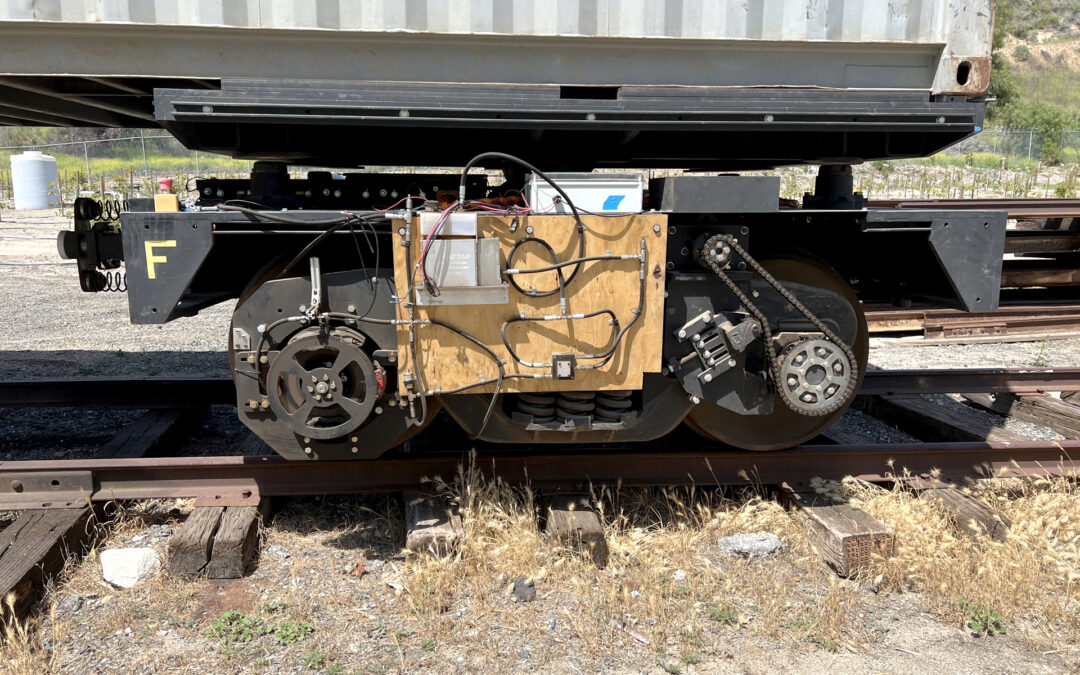Actual photos of autonomous rail equipment differ significantly from the computer-generated imagery widely distributed by manufacturers. (BLET photo taken during 2022 demonstration in Culver City, Calif.)
__________
BLET National Vice President Vince Verna reiterated the BLET’s support for new technology that makes the rail industry safer, but urged caution against the introduction of autonomous train technology that is “not ready for prime time.”
 Brother Verna testified on March 12 at a Federal Railroad Administration (FRA) hearing to consider numerous safety waivers requested by two Genesee & Wyoming short lines in Georgia that wish to test autonomous, self-propelled battery-powered freight cars from a tech manufacturer called Parallel Systems.
Brother Verna testified on March 12 at a Federal Railroad Administration (FRA) hearing to consider numerous safety waivers requested by two Genesee & Wyoming short lines in Georgia that wish to test autonomous, self-propelled battery-powered freight cars from a tech manufacturer called Parallel Systems.
“We believe that technology should be used to improve the safety and experience of people on the job, not to reduce employees solely in the pursuit of profit margins… We are pleased that Parallel Systems has included a place for certified locomotive engineers in the operation of its proposed automated rail car technology… However, the BLET has many critical safety concerns with the program that was submitted to the FRA. This technology is new but is similar to remote control operations in practice. We are concerned that Parallel Systems is trying to roll out this technology before it is developed enough for ‘prime time.’”
Brother Verna objected to the wholesale waiving of certain parts of the Code of Federal Regulations. He also urged the FRA to avoid repeating the same mistakes made years ago when FRA allowed the introduction of remote control switching operations.
“This submission is asking FRA to waive a great number of regulations in one fell swoop. FRA should not revisit its mistakes of the past that are haunting our present with remote control technology. Before remote control equipment was introduced, no person had ever run themselves over by their own train or cut of cars,” Verna says.
Some of BLET’s concerns with the current autonomous technology include: stopping distance; interaction with track employees, trespassers, or other equipment on the track; and the batteries used to power the autonomous units. Verna said: “If any derailment of these cars were to occur, the presence of the batteries would necessitate a hazardous materials response regardless of the goods being carried.”
Verna concluded: “From our attendance at multiple demonstrations of the automated cars, the technology is just not developed enough yet to meet a basic level of safety that is needed to be used outside of dedicated, unconnected testing facilities. As the technology improves, we will re-evaluate our position. I would like to reiterate that the BLET supports technology and innovation that makes our members safer.”
Complete audio of his testimony can be found here on the National Division website.

